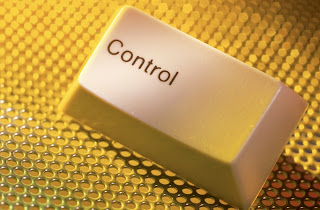Brain wiring
Remembrance
Resistance to impulse fulfillment can be attributed to specific areas of the human brain with alteration in neurochemical levels that promote (or when appropriate, protect from) rash decision-making. Broadly, the processing of thought and its systematization into rational evaluations is a knack known to few. Most act on gratifying impulses, failing to exercise any restraint on their needs and urges. It’s fun at times to make sudden plans and act on instinct in emotional situations if the outcomes are favorable. However normalcy is defined by the ability to be either impulsive or controlled depending on which is the most adaptive. Wise choices begin with an awareness of their existence.
Changing cues
Outcome focus
Nullification
Token economy
Remembrance
Overcooking
Loss identification
Memory of negative outcomes can be a good deterrent of
impulsive behavior. No one is proud of his or her idiocy. An extreme of this
negative memory can be seen in neurotic individuals where the embarrassment
from previous situations may leave one anxious and depressed. However within
normal realms, awareness of absurdity on account of impetuous action in the
past can dissuade one from repeating it and alter one’s control switches.
- I’ve had jaundice before; I mustn’t drink socially either
- Sarcasm didn't work in that fight, I need to be calmer
- Anger always gets the worse of me I need to control it
- My road rage almost got me killed; I better manage it
Overcooking
When the dish is overcooked it gets charred, meat gets stiff
and vegetable get mushed. Its better to not give oneself a choice if the decision-making
process is going to be hard and the time to make that selection is limited
(which usually is the case in impulsive behavior responses). A loud and shrill
alarm clock on the repeat mode placed in the other corner of the room tends to trouble
you if it hasn't wakened you in the first go. The process of turning it off
itself will awaken you. There are ways and means to make ourselves do the right
thing if we really want them done.
- Taking medication that can make you sick when you drink
- Associating smoking with a visual image of burning lungs
- Seeing your company make losses because of your moods
- Overvaluing the price of breaking friendships due to anger
Locus change
Self-control is an internal drive. As much as we decide to prize
or punish ourselves for our behavior, the will to resist has to come from
within. Reasons and attributions ought to be superior. Exercise is good, not just
for worthy looks, but more importantly for healthy body. The true value of
goodness needs to be known in order to be appreciated.
- Anger is an unconstructive emotion; I will refrain from it
- Smoking impacts my family, and me; I’d rather give it up
- Road rage is adverse; I will be more patient when I drive
- When I am calm I become the stronger person and I win


No comments:
Post a Comment